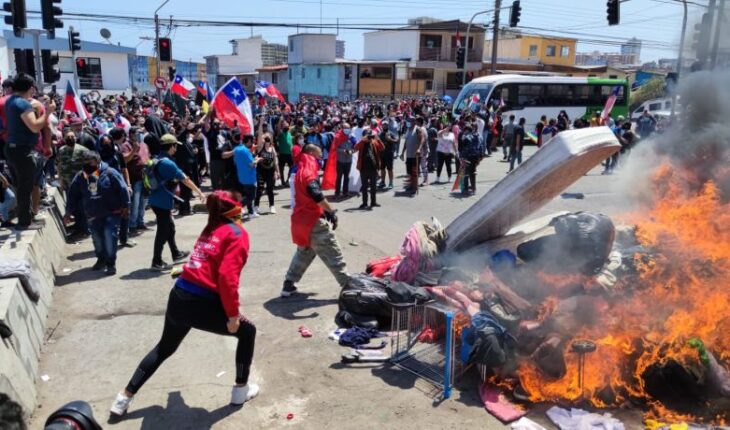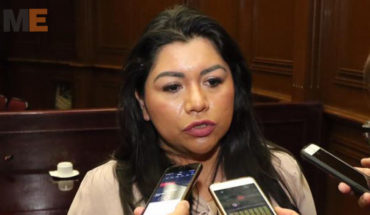The third round of dialogue between the Government and the opposition of Venezuela concluded on Monday without outstanding agreements but with a condemnation on the part of both delegations before the “xenophobia and violence” that occurred in Chile against Venezuelan migrants. The delegations expressed their rejection of the xenophobia actions perpetrated against Venezuelans in Chile, which constitute a violation of Human Rights,” they said in a joint statement at the conclusion in Mexico City of the third round of negotiations, arbitrated by Norway.The events happened last Saturday at the end of a massive march against irregular migration in the city of Iquique, Northern Chile, which summoned around 5,000 people, after which a group of demonstrators burned the tents that were used by foreigners to spend the night in squares and beaches. The president of Chile, Sebastián Piñera, condemned “categorically” on Monday “the brutal aggression that an uncontrolled mob committed against a group of irregular migrants” and promised that there will be no impunity. Both the Venezuelan government delegation, led by Jorge Rodríguez, president of the National Assembly, and the opposition, represented by businessman Gerardo Blyde, rejected “the hate campaign undertaken against Venezuelans in various countries.” Beyond his conviction, this third round that started late on Saturday due to several setbacks, concluded on Monday without major agreements. This phase of contacts should be about a judicial reform in Venezuela but in the joint communiqué they limited themselves to expressing that “positions were approached in the search for solutions to the challenges in social, economic and political matters.” Venezuela’s own president, Nicolás Maduro, had expressed his desire to reach “new agreements” in the third round of dialogue with the opposition. But the only pact announced was to “carry out immediately” consultations with national and international political and social actors, although they did not give more details. They also agreed “on the need to ensure a gender approach in the development of dialogue.” During the reading of the communiqué, in which the head of the Norwegian delegation, Dag Nylander, participated, the date of what would be the fourth round of negotiations was not detailed. This third round started on Saturday with a day of delay, as the government delegation planted the opponents on Friday. The dialogue could be resumed after Norway, arbitrator in the negotiations, reaffirmed its “impartiality” after the controversial words of its prime minister, Erna Solberg, who criticized before the UN the violations of human rights in Venezuela, something that Chavismo did not like. In addition, in the previous days the Venezuelan government accused the United States of giving orders to the opposition “on what to do at the dialogue table.” And he announced by surprise the appointment of Colombian businessman Alex Saab as a member of his delegation, despite being imprisoned in Cape Verde, waiting for whether he is extradited to the United States.The dialogues began on August 13 at the National Museum of Anthropology of Mexico after the failed approaches of recent years in Barbados and the Dominican Republic.That day, the ruling party and the opposition signed a memorandum with seven points to be discussed: political rights, an electoral schedule with guarantees, respect for the rule of law, the lifting of sanctions, the renunciation of violence, social protection measures and guarantees of implementation of what was agreed. Although the initial talks lasted until August 15, it was not until the second round of contacts, between September 3 and 6, that the first agreements were closed. In that meeting they agreed to jointly claim Venezuelan sovereignty over Esequiba Guyana, disputed between Venezuela and Guyana, and a “partial agreement for the social protection of the people” so that the Maduro Government can recover assets frozen abroad.
translated from Spanish: Maduro government and Opposition reject actions of “xenophobia and violence” against migrants in Iquique
September 28, 2021 |





